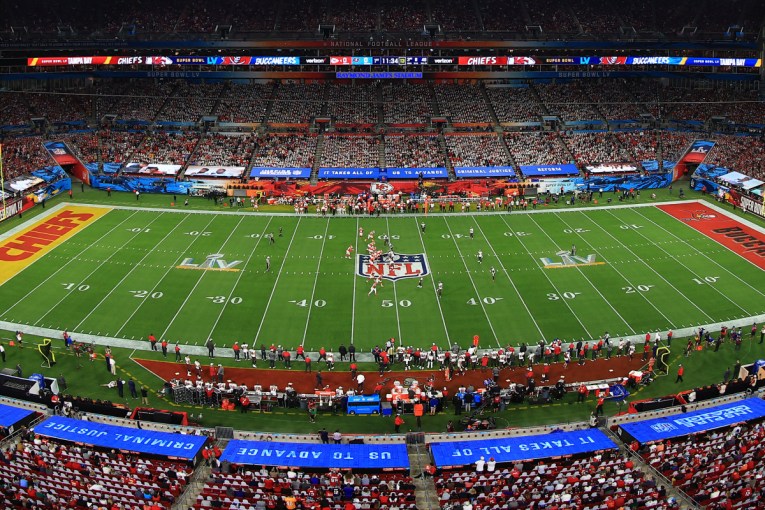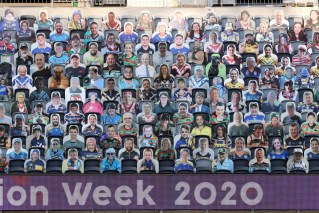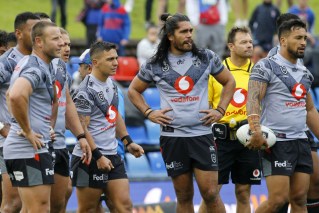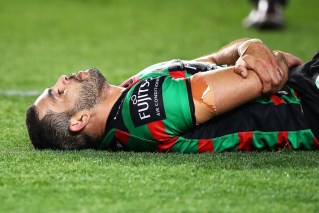Demon’s addiction battle a cautionary tale

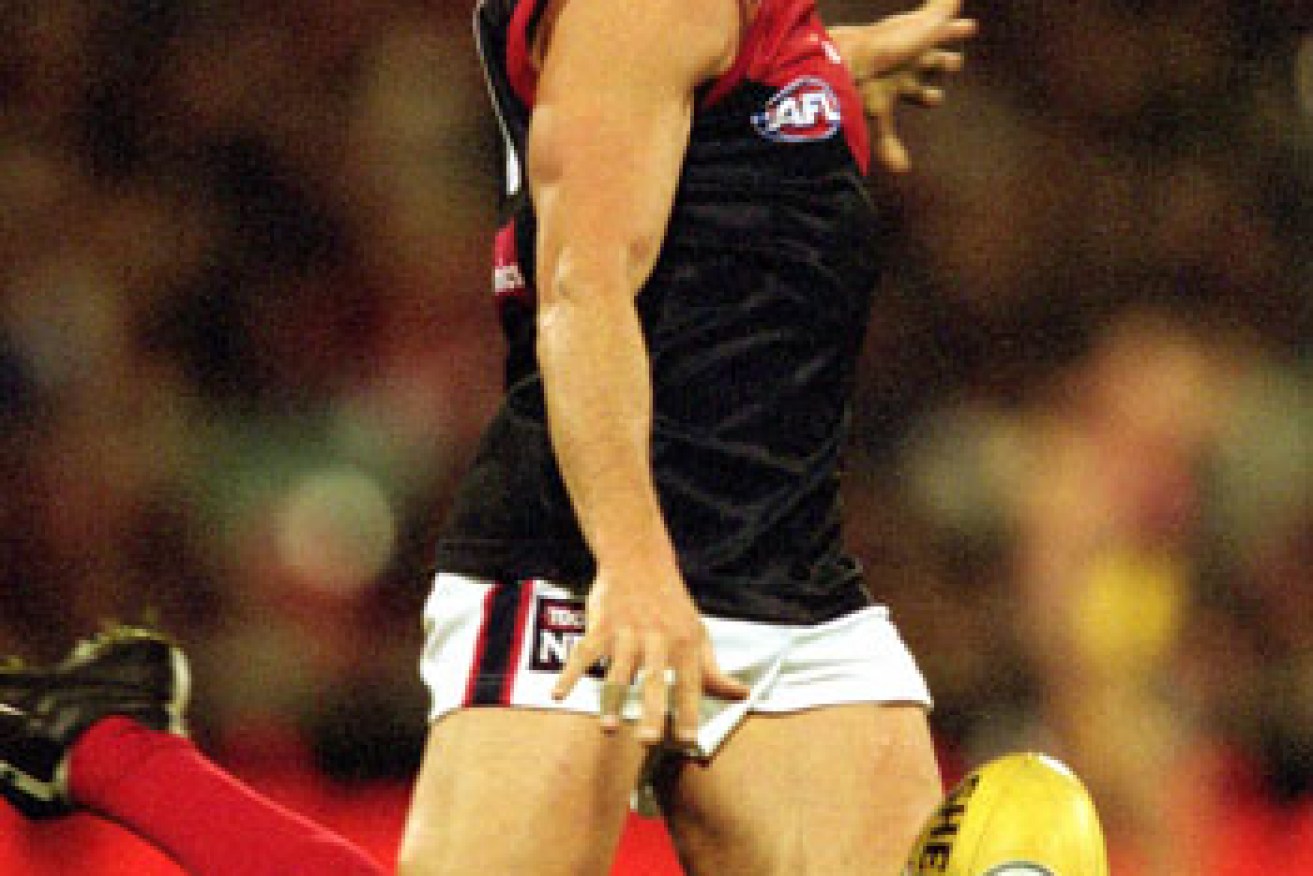
Febey self-medicated his post-traumatic stress disorder with drugs and alcohol. Photo: Getty
The details of Steven Febey’s post-football battle were confronting, compelling, raw and real. But they weren’t entirely surprising.
The ex-Demon – who played 258 games, including two Grand Finals, from 1988 to 2001 – opened up this week on his fight with alcohol addiction, drug use and depression following his retirement from football.
Febey’s life was changed forever when he was at the scene of the Bali bombings in 2002.
• One of the greatest droughts in Australian sport is about to end
• Everything’s gone wrong, but this team just keep winning
• The greatest cricket match you never saw
The first explosion threw him across the street, as did the second, and the chaotic aftermath – which involved dramatically searching for his then-teammates – triggered a bout of post-traumatic stress disorder.
He initially felt comfortable in post-football life but, without the structure of playing elite level sport, and largely affected by the bombings, his life soon unravelled into drinking and drug binges and bouts of depression.

Ian Thorpe is another high-profile athlete who struggled to make the transition into retirement. Photo: Getty
Febey, now clean for over six months, isn’t the first – and won’t be the last – athlete to struggle with the transition into ‘normal’ life. Ian Thorpe, Ben Cousins, Andrew Flintoff and Paul Gascoigne are other high-profile examples.
Athletes dedicate year after year in the pursuit of glory, often making significant sacrifices, all for the buzz of competition.
Every year, sport gets more and more professional. More money is splashed about. Athletes receive more and more attention and adulation.
But that, according to psychiatrist and ex-Australian of the Year, Professor Patrick McGorry – who helped treat ex-AFL star Nathan Thompson when he battled depression – makes the post-retirement battle even tougher.
“I think it is (much harder than it was),” McGorry told The New Daily.
“Not so long ago, many players had part-time jobs. They weren’t as totally immersed in sport as they are these days.
“There’s more financial challenges for them these days as, in many cases, they go from a high income to a much more normal level.
“Their transition into normal life is becoming very difficult to make. They have to give up something they love and they feel it terribly.
“Those in sport are more vulnerable than the average person retiring … they can easily get overwhelmed.”
Gavin Crosisca – an AFL premiership player with Collingwood who battled drug and alcohol addiction – does not attribute his problems to leaving a professional sporting environment.
But he says the transition process is the most significant issue facing sporting clubs.
“I think that’s the biggest dilemma and the biggest difficulty clubs and players have – that transition (into post-footy life),” Crosisca, now an addiction counsellor, told The New Daily.
“Whether it’s after a four-year career or a 15-year career, there’s only a certain amount of jobs in the media and coaching. A lot of guys want to get into that. It’s a really difficult transition.
“And it’s a bit of a slap in the face when you go from (being) a full-time professional footballer and earning pretty good money and then coming back to a standard income – it can be a bit of a shock to the system.

Febey self-medicated his post-traumatic stress disorder with drugs and alcohol. Photo: Getty
“Egos are huge in AFL footy too, and another characteristic you find with addicts or people that struggle with alcohol and drug addiction, is that we have big egos and a low self-esteem.”
The obsessive nature of athletes on things like diet and training can also be responsible for post-retirement problems, Crosisca added.
And Professor McGorry believes those issues are only going to get worse for those calling it quits in today’s environment.
“If sport gets more and more commercialised, which it seems to be doing with things like betting creeping in more and more, it puts young people more at risk,” he said.
“The codes are starting to get more involved in a duty of care mode – some are terrific – but some haven’t really got to first base.
“Money and a whole lot of other bad influences are affecting the whole landscape… there are pretty high levels of poor mental health in all the codes (though).”
For Febey to tell his story took extreme courage. And for that, he should be applauded.
Perhaps the growing shift in mental health awareness encouraged him that it was the right move.
But Professor McGorry is unsure that rise has actually helped in terms of care.
“Better awareness is a good thing but what I’m starting to think is: is it really helping?” he added.
“The treatment of Adam Goodes last year and Nathan (Thompson), a few years ago…he didn’t get a very good reception from some people.
“We are getting everyone talking about it…but I’m not sure that awareness is leading to better care for people with mental illness.
“What we need to have promoted is more sophisticated approaches to care. And governments are really flat-lining on that at the moment.”

